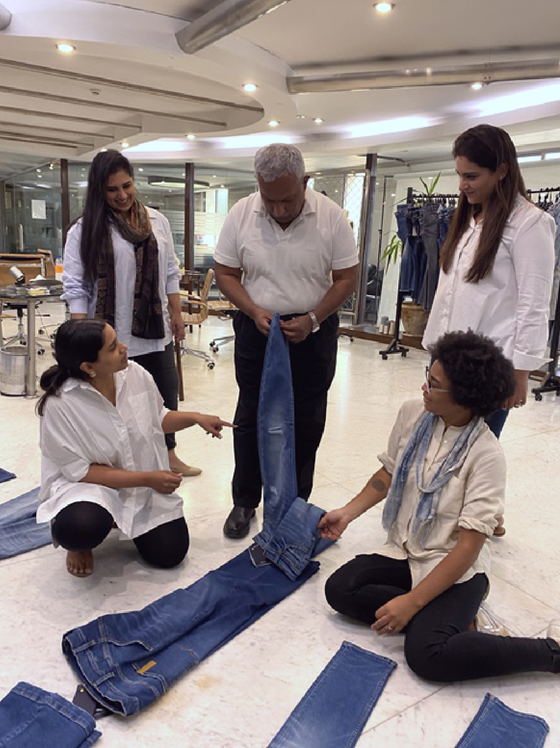One effective approach for apparel production companies to attain a competitive advantage and distinguish themselves within the global apparel supply chain involves creating workplaces that respect their employees, with a specific focus on empowering
One effective approach for apparel production companies to attain a competitive advantage and distinguish themselves within the global apparel supply chain involves fostering workplaces that respect their employees, with a specific focus on empowering the workforce that dominates the sector: women.
Artistic Fabric Mills Ltd. (AFM) is a prominent pioneer in women’s rights in Pakistan’s apparel sector, known for its commitment to gender equality. As a vertically integrated leading manufacturer of denim in Pakistan’s textile industry, AFM actively participates in the Global Trace Protocol (GTP) traceability tool pilot project. Recognising the importance of women’s voices throughout the cotton supply chain, AFM strives to provide better opportunities for women to be heard and make an impact.

Women’s Empowerment, Traceability and Sustainable Energy in the Apparel Sector
Ms. Saba Iqbal, Director of AFM, expressed enthusiasm for their involvement in the traceability project and emphasises the significance of due diligence in the apparel sector. Acknowledging women’s presence in various stages of garment production, Ms. Iqbal emphasises the need to include them in decision-making processes. While the industry typically values the ideas of female decision-makers, AFM seeks to foster inclusivity and transparency across the entire supply chain.
AFM has various company policies that support and promote women at all organisational levels. These policies include an open-door policy and anti-harassment policies, gender-bias training, actively hiring women in leadership roles, and equal pay. Ms. Saba stressed that women possess extensive knowledge and skills in diverse production processes, making them invaluable assets for driving positive change. Recognising the vulnerability of women to exploitation and discrimination in Pakistan’s garment factories, AFM prioritises women’s rights and strives to amplify their voices, aiming to break the barriers that hinder their full participation in the workforce.
In addition to their efforts within the factory, AFM extends support in women’s empowerment, community development and environment conservation. Currently collaborating with the WWF, AFM assists small farmers’ families by offering organic and sustainable options for cotton cultivation, promoting sustainable livelihoods. The company also undertakes projects in water recycling and solar energy, exemplifying its commitment to regular audits addressing social and environmental aspects of the business.
The Future of Traceability and Ethical Practices within the Supply Chain
There is a growing awareness of ethical behaviour within the industry, driven by consumer demand for transparent business practices and decent working conditions for the women making their clothes.
“The GTP program verifies the source of our raw materials and that no forced labour was used throughout the process, from farm to factory”, said Ms. Iqbal. Traceability and consequently, transparency have become increasingly crucial in safeguarding vulnerable groups, including women. Given the higher representation of women within AFM’s workforce, they can play a leading role in championing traceability. Enhanced traceability and improved visibility can foster ethical sourcing, greater gender equality, social inclusion, and better work environments for women and all employees.
Learn more about traceability and the Global Trace Protocol here.
-----------------
Funding for the Global Trace Protocol project is provided by the United States (U.S.) Department of Labor (DOL). This material does not necessarily reflect the views or policies of the United States Department of Labor, nor does mention of trade names, commercial products, or organisations imply endorsement by the United States Government
